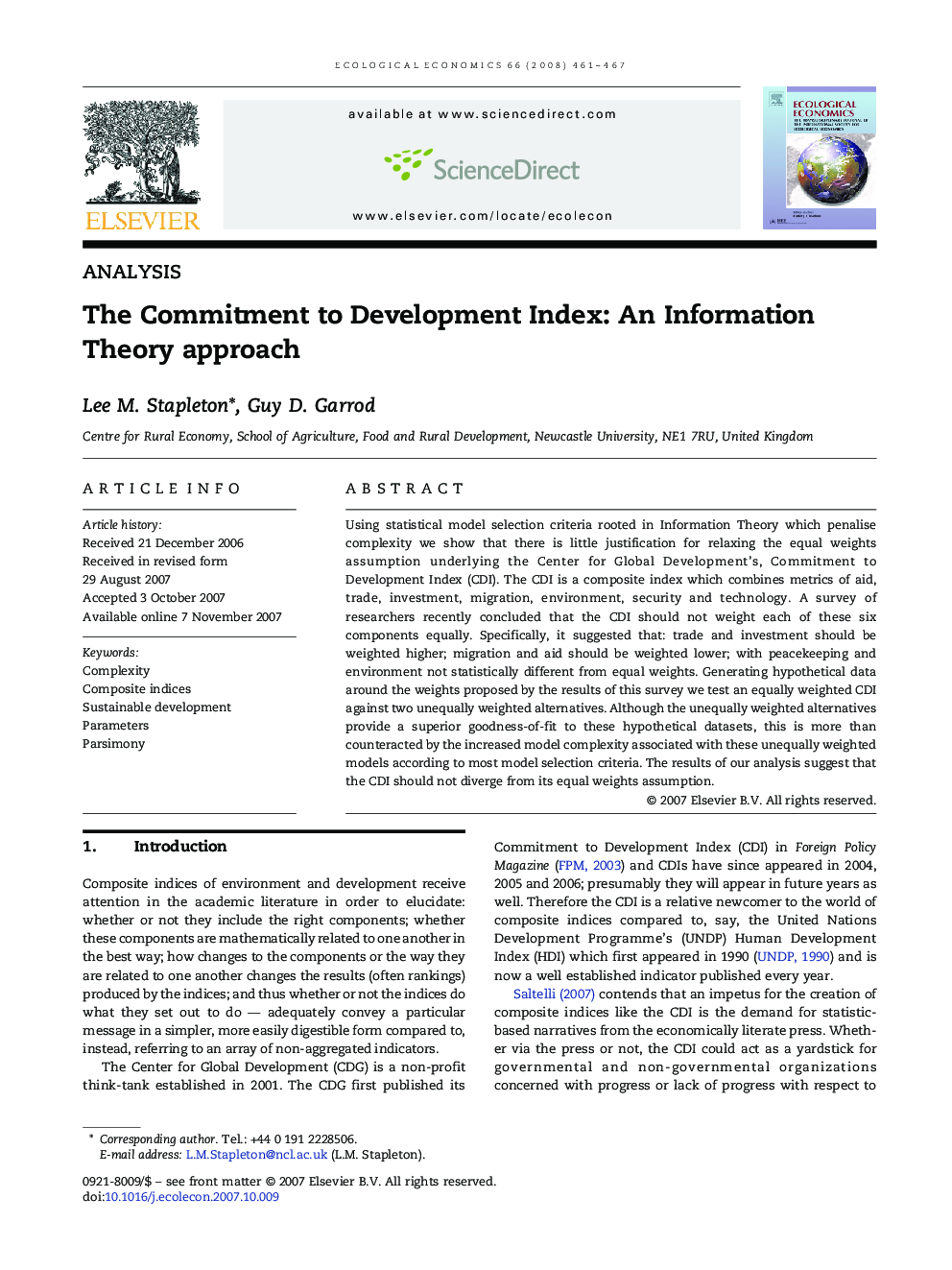| Article ID | Journal | Published Year | Pages | File Type |
|---|---|---|---|---|
| 5051585 | Ecological Economics | 2008 | 7 Pages |
Abstract
Using statistical model selection criteria rooted in Information Theory which penalise complexity we show that there is little justification for relaxing the equal weights assumption underlying the Center for Global Development's, Commitment to Development Index (CDI). The CDI is a composite index which combines metrics of aid, trade, investment, migration, environment, security and technology. A survey of researchers recently concluded that the CDI should not weight each of these six components equally. Specifically, it suggested that: trade and investment should be weighted higher; migration and aid should be weighted lower; with peacekeeping and environment not statistically different from equal weights. Generating hypothetical data around the weights proposed by the results of this survey we test an equally weighted CDI against two unequally weighted alternatives. Although the unequally weighted alternatives provide a superior goodness-of-fit to these hypothetical datasets, this is more than counteracted by the increased model complexity associated with these unequally weighted models according to most model selection criteria. The results of our analysis suggest that the CDI should not diverge from its equal weights assumption.
Related Topics
Life Sciences
Agricultural and Biological Sciences
Ecology, Evolution, Behavior and Systematics
Authors
Lee M. Stapleton, Guy D. Garrod,
